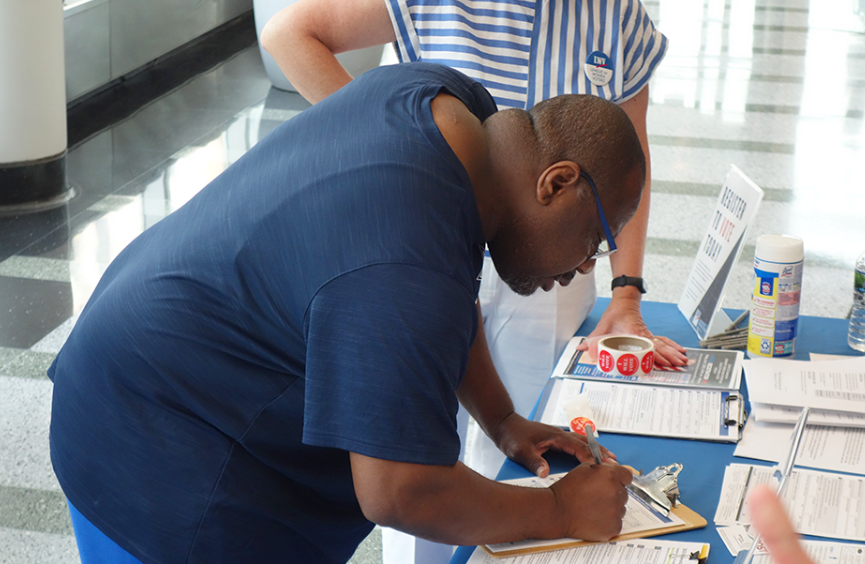Minnesota Continues Work to Register Formerly Incarerated Voters
"This feels wonderful because people can hear my voice. I have a right to vote now.”

As a result of a law passed during the 2023 state legislative session in Minnesota, House File 28 restored voting rights to people convicted of crimes but no longer living in prison or jail. Prior to passage, people had to wait until their periods of probation or parole ended.
Most often, the last people released inmates see upon leaving prison are the discharge staff at the prisons. Among the first people they see after they are released are probation and parole staff. Both the state and federal agencies said last week they are trying to provide information about the new law.
Kito Bess, chief U.S. probation officer for Minnesota, said his office now includes voting as part of the first orientation session with recently released inmates. “Under the old law we did it at the back end,” Bess said. “When they completed their supervision, we would send voting information to them by letter as part of their termination of supervision.” Now, it is contained in the orientation packet." The agency also has altered its use of its Client Emergency Notification System, an emergency alert texting application, to include more general information.
It's through that notification system that Milton Rucker heard about the new law and voter registration events. Three different times before an event last week that was sponsored by the Minnesota League of Women Voters, Rucker received messages from the people who supervise his release from federal prison.
“I was in and out of trouble, so basically I lost the right to vote,” said the 50-year-old Rucker. “In the last three years I finally turned it around. I turned my life around and this is a plus for me.” Rucker said he was released from federal prison in 2020 and was expecting to have to wait to register until his five-year probation period ended in September, 2025. The new law advanced that timetable.
“This feels wonderful because people can hear my voice. I have a right to vote now.” Rucker said while touching the red “I Will Vote” sticker given him by league staffers after he signed the paperwork. Rucker said his grandson was one month old when he returned from prison in Illinois. “That was a plus,” Rucker said. “I’m a role model so I have to show him the right ways instead of the wrong ways. Now I’m a part of society, I can vote, I can show other people that you have a voice.”










